Truffle Races
This article is a work-in-progress because it is incomplete and pending further input from an author. Note: The contents of this article are not considered canonical and may be inaccurate. Please comment on this article's talk page to share your input, comments and questions. |
| Truffle Races | |||||||
|---|---|---|---|---|---|---|---|
| Part of Levanto-Sarpic conflicts | |||||||
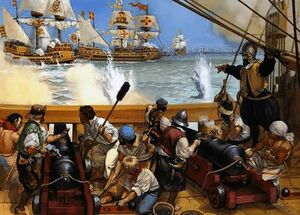 The Third Battle of Aab-a-Farus | |||||||
| |||||||
| Belligerents | |||||||
|
Burgoignesc powers |
| ||||||
| Commanders and leaders | |||||||
|
Burgoignesc powers
| |||||||


The Truffle Races, also known as the Truffle Wars, were a series of conflicts between Caphiria and Maritime Dericania in the late-Renaissance period (1574-1602) to locate, cultivate, and harvest rare truffles around the world. Throughout most of the 1570s-1590s the conflict was contained to the Odoneru Ocean, Sea of Canete, and Sea of Istroya, but dealing with established relationships and networks of alliances was costly and slow. In the early 1590s a Caphirian explorer, Biggus Dixus, found truffles in the Emirate of Zaclaria and the races turned into a violent geopolitical struggle for the western entrance to the Aab-e-Farus, the Barbary Straits.
Background
The Truffle Races were a commercial trade conflict but historiographically they represent so much more than just a mere skirmish for a valuable resource between Levanto-Sarpic powers. They occurred on the merger between the Age of Sail and the Age of Discovery, in the context of the Occidental Renaissance, when the artillery revolution was forcing the end of the feudal system and making nation-states out of fiefdoms.
That became focused on territory in Alshar was a direct result of the collapse of the Oduniyyad Caliphate in 1517. This saw many events that heralded the end of the Alshari-Occidental overarchingly balanced relationship seen during the Crusades and shifted it toward unequal combat wherein the Occidental world had more power and began to colonize Alshar and Audonia.
In Caphiria
Caphiria's involvement in the Truffle Races was driven by a combination of economic, nationalistic, and political motivations. The high value of truffles made them an attractive commodity for trade, and Caphiria saw the potential for economic gain as a way to boost their economy during its Dominate era. At the same time, the discovery and control of new sources of truffles was seen as a way to assert their national pride and prestige, and the desire to gain control over new territories and resources.
In the late 1570s, Caphiria began to invest heavily in exploration and mapping of the Odoneru Ocean, Sea of Canete, and Sea of Istroya. By mapping these areas, Caphiria would be able to establish control over trade routes and ports, and it would allow them to plan expeditions and military campaigns more effectively and would give them a better understanding of the region's potential for colonization and resource extraction. As a rival of Caphiria during this time, Burgundie would have had similar motivations to gain control over valuable resources and trade routes. Burgundie would have been aware of Caphiria's exploration efforts and would have seen it as a threat to their own economic and political interests. As such, they would have mounted their own mapping and exploration efforts around the same time. As such, both Caphiria and Burgundie would have been in a constant state of competition and rivalry.
Major Events/Outcomes
It saw a massive investment in the Imperial Naval Fleet and merchant marine of Caphiria and likewise the various navies of the coastal Latium and their merchant fleets/trading companies. It largely faded out as a specific conflict when the Burgoignesc duchies shifted their focus to colonization and generalized raw material extraction as opposed to resource-specific forays.
In the Levantine sphere it saw the introduction of galleons which eventually overtook carracks as the primary ship for overseas navigation.
Alcairet
Main article: Alcairet 1577 Burgoignesc Kandahar-Kandara Trading Company Barbary Straits Colony
Chaukhira and Zaclaria
Main articles: Chaukhira and Zaclaria While Caphirian explorer Biggus Dixus was charting the shores of the Aab-e-Farus, he came to a large, established port town. In its market stalls, he found myriad of what he thought were truffles, it was much later determined to actually be terfez. This discovery caused a truffle rush for the shores of Aab-e-Farus.
The Martillien North Levantine Trading Company (MNLC) made a play for access to the markets of the Zaclarian truffle market but were given unfavorable terms compared to the Caphirian merchants. They were instead forced to trade, second-hand, through the bizarres of the island of Chaukhira, a subject of the Emirate of Zaclaria, and only had access to lesser quality/sized truffles. In 1584,
Image Gallery
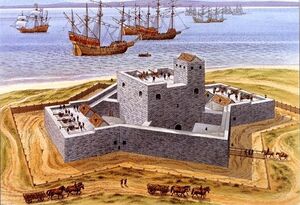 |
 |
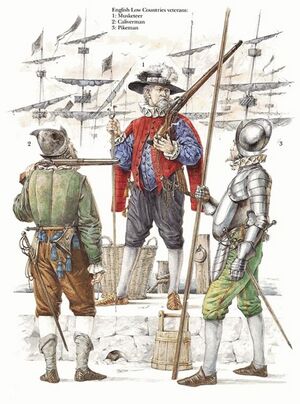 |
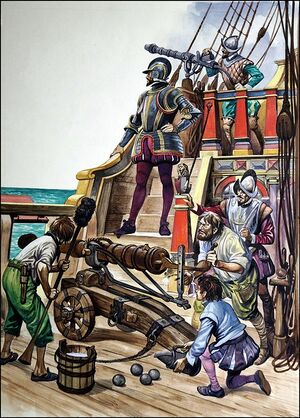 |
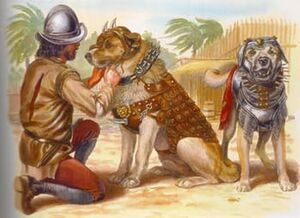 |
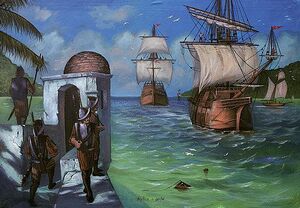 |
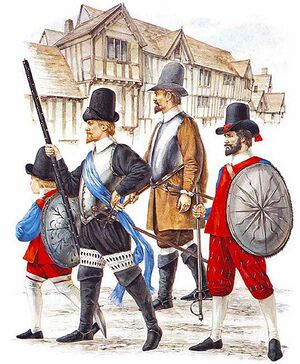 |
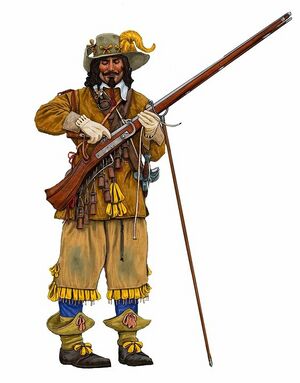 |
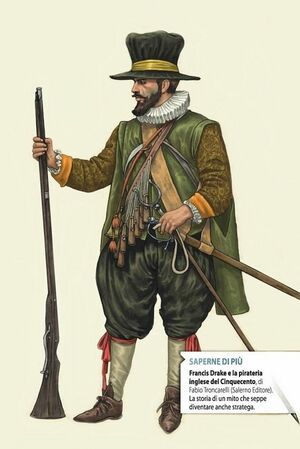 |